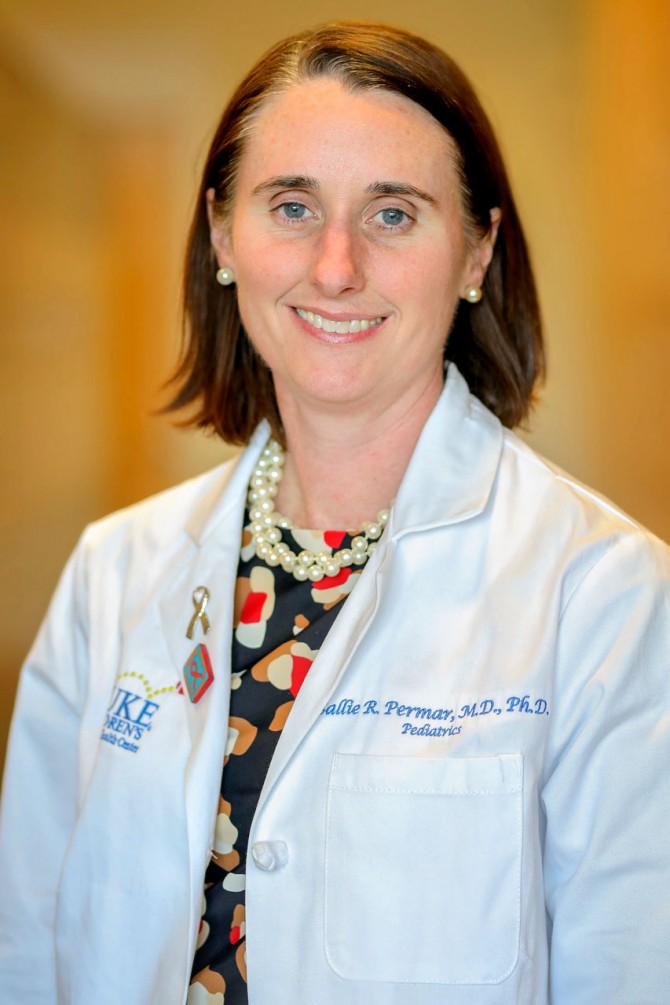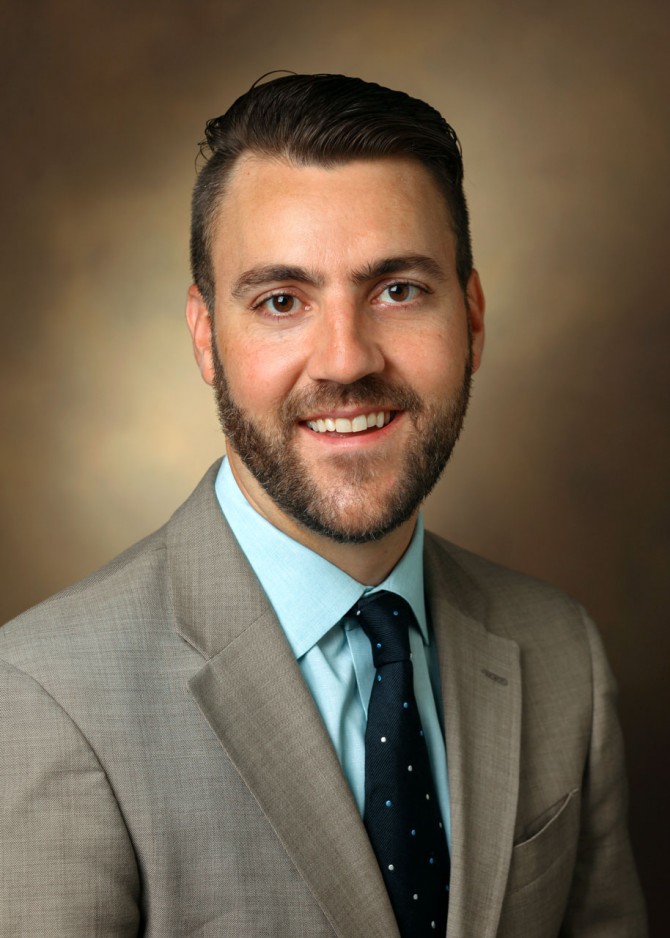Dr. Sallie Permar, a physician-scientist who investigates the prevention and treatment of neonatal viral infections, and Dr. Stephen Patrick, a neonatologist focused on the impact of the opioid epidemic on pregnant women and infants, have been jointly awarded Weill Cornell Medicine’s fifth annual Gale and Ira Drukier Prize in Children’s Health Research.
The Drukier Prize, which honors early-career pediatricians whose research has made important contributions toward improving the health of children and adolescents, was established in 2014 as part of a $25 million gift to Weill Cornell Medicine. The gift also created the Drukier Institute for Children’s Health, a premiere, interdisciplinary institute dedicated to understanding the underlying causes of diseases that are devastating to children.
The Drukier Prize carries a $10,000 unrestricted honorarium to recognize the innovative work done by young investigators in pediatric research.
Permar, associate dean of physician scientist development, professor of pediatrics, immunology, molecular genetics and microbiology, and founding director of the Children’s Health and Discovery Institute at Duke University School of Medicine, is being honored for her research into the development of vaccines to prevent mother-to-child transmission of neonatal viral pathogens.
Patrick, an associate professor of pediatrics and health policy and director of the Vanderbilt Center for Child Health Policy at Vanderbilt University School of Medicine, is being recognized for his research on improving outcomes for infants born to opioid-dependent pregnant women using a public health framework.
“Drs. Permar and Patrick are skilled physician-scientists whose commitment to pediatric research and care exemplifies the spirit of the Gale and Ira Drukier Prize in Children’s Health Research,” said Dr. Augustine M.K. Choi, the Stephen and Suzanne Weiss Dean of Weill Cornell Medicine and Cornell’s provost for medical affairs. “Dr. Permar’s innovative work investigating the prevention and treatment of neonatal viral infections has advanced this vital field of research, while Dr. Patrick’s examination of the impact of the opioid epidemic on pregnant women and infants has informed national policy in this area. Their respective research offers the promise of a healthy future for countless children, and we’re delighted to recognize them this year.”
“We are thrilled to be honoring two exceptional winners with this year’s award,” Dr. Gale Drukier and Weill Cornell Medicine Overseer Ira Drukier, who together in 2014 established the prize, said in a statement. “The dedication Dr. Permar and Dr. Patrick have displayed to improving the lives of children is inspiring, as they work to ensure the health of newborns through pioneering research and compassionate care. It brings us great joy to recognize those who are affecting real change in pediatric research, like these physician-scientists, and to highlight their important work.”
Permar leads a research lab that is working toward the development of vaccines to prevent mother-to-child transmission of viruses such as HIV, Zika and cytomegalovirus (CMV). Recently, Permar and her research team have focused their efforts on CMV, the most common congenital infection and leading cause of birth defects in the world, affecting one in 150 newborns.
Permar’s work has led to a more thorough understanding of what is required of a vaccine to protect against transmission of the virus from mother to infant. Not only must it prevent congenital infections, but vaccine strategies must also address breast milk-associated CMV transmission to very premature infants.
Permar received a Bachelor of Science from Davidson College in 1997, and a doctorate in microbiology/immunology from Johns Hopkins University Bloomberg School of Public Health and a medical degree from Harvard Medical School in 2004. She completed her clinical training in pediatric infectious diseases at Children’s Hospital in Boston. She is a member of the American Society of Clinical Investigation, the American Association for the Advancement of Science, the American Pediatrics Society, the American Academy of Microbiology, and the Society for Pediatric Research.
Patrick’s research focuses on how to improve outcomes for pregnant women and infants affected by the opioid epidemic, including newborn babies who have drug withdrawal symptoms, known as neonatal abstinence syndrome. When Patrick began his research, the link between opioid prescriptions and overdose deaths was clear, but the relationship between opioid exposure and newborn health was not. His findings have shown that the number of infants diagnosed with neonatal abstinence syndrome grew nearly sevenfold between 2000 and 2016 nationwide.
His research found a link between higher rates of the syndrome and long-term unemployment, especially in rural areas, and his findings have had a direct impact on policy changes that benefit children. For instance, the Protecting Our Infants Act, which was signed into law in 2015 and aims to help prevent and treat babies exposed to opioids in utero, cited Patrick’s research in the bill.
Patrick received a Bachelor of Science in microbiology and cell science from the University of Florida in 2002, a medical degree from Florida State University College of Medicine, and a Master of Public Health degree from Harvard University School of Public Health in 2007. He also earned a Master of Science in health and health care research from the University of Michigan in 2011.
He is board certified in pediatrics and neonatal-perinatal medicine. He is a member of the American Academy of Pediatrics Committee on Substance Use and Prevention and the Society for Pediatric Research, which awarded him its Young Investigator Award in 2019.
A version of this story appears on the Weill Cornell Medicine website.
Kim Goad is a freelance writer for Weill Cornell Medicine.









